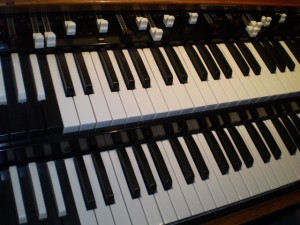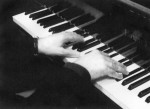
Organ Lessons
Music should be an an enjoyable activity, but it is also a form of discipline that can help develop a young person’s study habits and outlook on life in a positive way. The main goal is for the student to play musically and creatively; to be able to figure out a phrase of music and find the emotional content or to be able to make up his or her own emotionally packed phrases.
When we pursue the study of music, we learn the important lessons of focus, concentration, and goal setting. Studying music also teaches us a language, the expression of our emotions, and develops creativity in a way that is enjoyable.
The student will progress at the fastest rate possible but will still learn all the necessary skills needed for his or her playing enjoyment. To learn music, the student must develop self discipline. To teach without discipline is to create a student who will never learn how to learn. Discipline can be instilled in a manner in which the student doesn’t even know he or she is acquiring it. It can be painless and even fun.
Not everyone studying the piano or keyboard is interested in being the next Horowitz, Van Cliburn, or Billy Joel. Most people want to play for their own enjoyment and pleasure. This is how the Weeklund philosophy is focused for those students. Theory is introduced as needed for each situation. The Weeklund philosophy is “The Act Before The Fact”. It is much easier to explain something after the student is already doing it.
One of the most important aspects in music is improvisation, whether by the classic pianist making up a cadenza, or the jazz or rock player taking a solo, or the church musician segueing from one hymn to the next. Improvisation is to music as speaking is to language; it is musical speech. All students are introduced to the form of improvisation that will fill their needs.
Children are inquisitive by nature and improvisation can be the key to musical self-expression and discovery. Lesson plans for both children and adults employ playing by ear and listening to and transcribing from recordings. The best case scenario is one in which the cultivation of improvisational skills blends with traditional skills and techniques. In this way, learning any form of music becomes not so much a problem to be solved and evaluated, but a living process of expression and discovery.
The Weeklund philosophy embodies a method of teaching which combines the aesthetics of music with the development of playing techniques.
Recently, I had a parent of one of my students call me a “practical” piano teacher because of what and how I was demonstrating for his daughter at the time. I have since started using that term to describe part of my teaching approach. I will teach you what you need to know to play the things you want to play.

 Piano
Piano